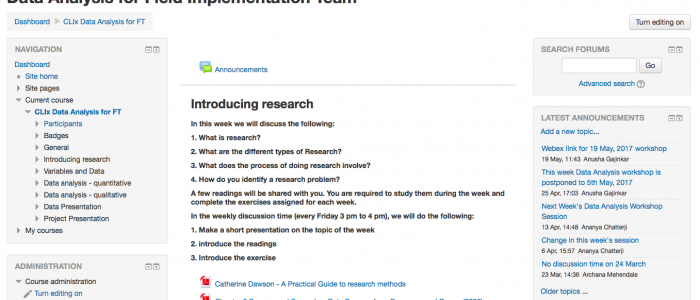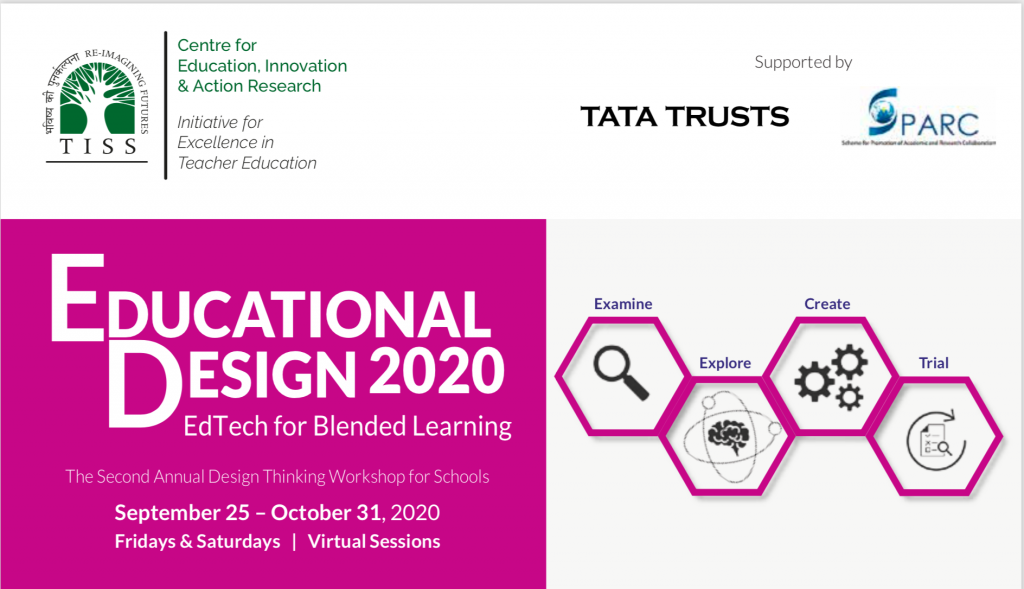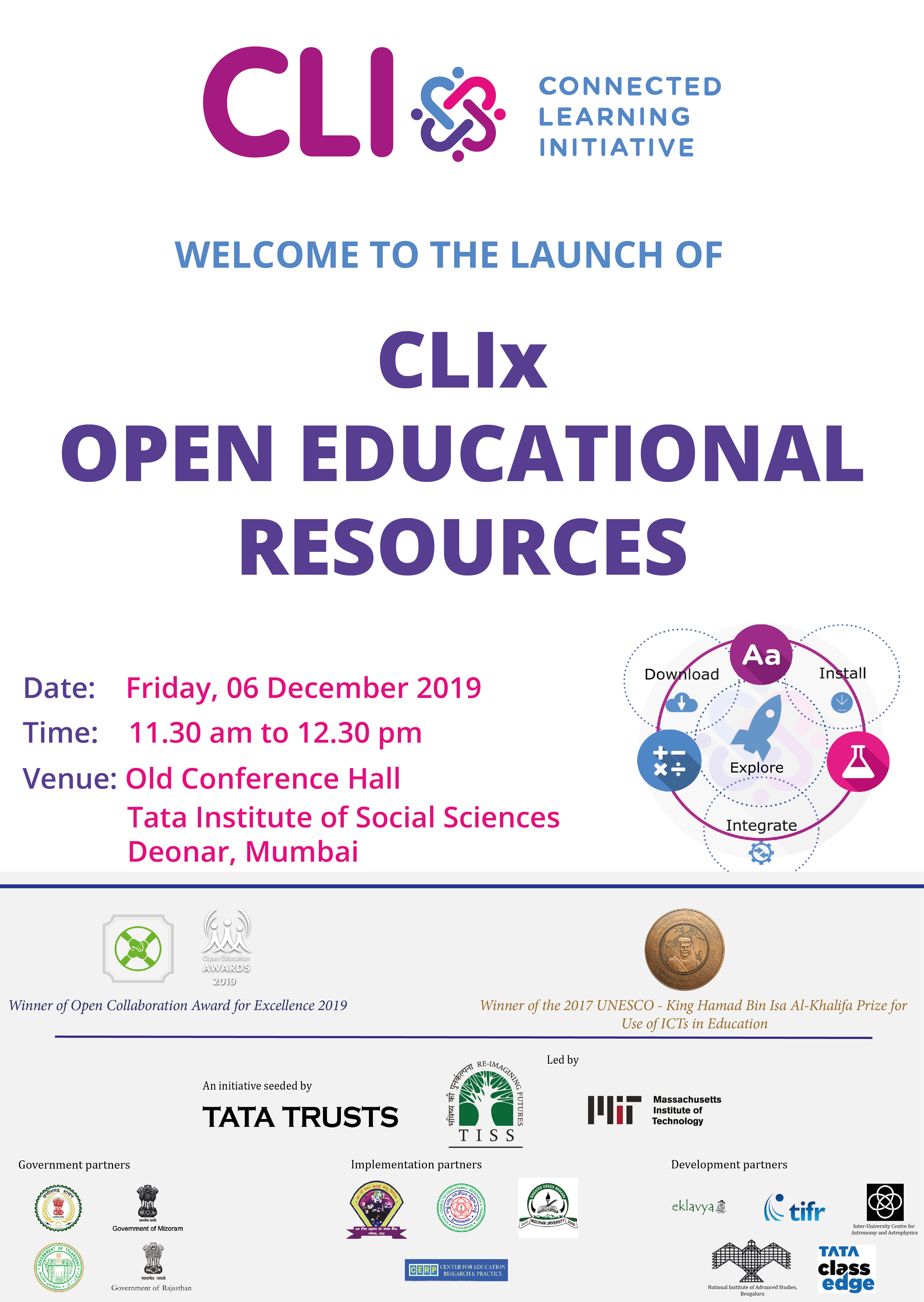Leveraging Our Key Resource for Research
Connected Learning Initiative (CLIx) is an action research project. In action research, data and research inform practice in the field, and practice carried out with a systematic research orientation contributes to knowledge building. Data Analysis Workshop, which is a course on understanding of data and its analysis, was planned for the field implementation team. The rationale of this course was to orient the field implementation team to data and its handling and use.The focus was on building skills to decide what data is important for what purposes, the various sources of data within CLIx and how data can be analysed for the action research process.
The course was offered in a blended form, was hosted on the CLIx Moodle space and was self-paced. The reading materials were shared with participants via Moodle. Webex was used for conducting synchronous discussions once a week. Participants were the field implementation team members from all four states where CLIx is being implemented — Chhattisgarh, Mizoram, Rajasthan and Telangana. The workshop started on 9 March 2017 and went until 9 June 2017. The course had been planned for 6 weeks, but it was stretched to 12 weeks to accommodate urgent field level tasks. The Workshop had discussions on many topics, as shown in the table.”
| Topic | Topic discussion brief |
| Action Research, Research Process,Types of Research and Research Basics | The discussion was on what research is, different types of research, the process of doing research and identifying a research question. |
| Variables, Data, Data Sources and Data with CLIx | The discussion was on identifying quantitative and qualitative data, data classification based on sources of data; primary and secondary data and measurement scale; nominal, ordinal, interval and ratio data. |
| Quantitative Data Analysis | The course discussed descriptive statistics like mean, median, mode, range, standard deviation and variance, as well as different types of correlation. |
| Qualitative Data Analysis | There was an introduction to qualitative research designs, data collection methods, qualitative data analysis steps, as well as to software like MaxQDA, Atlas.ti. |
| Data Presentation | The major focus was on different types of graphs and the choice of the most appropriate graph based on the data to be presented and the objective of the presentation. |
| Review and Project Presentation | The discussion summarised all previous topics, clarified doubts and concluded with tips for planning for state research studies. |
The course was received positively by the field teams, and it was a good starting point for an understanding of data and its use.For some, it was helpful in planning field-level research studies. The field teams felt that the course would have been more engaging if they had received study materials in Hindi and had had enough time to complete the readings and assignments. The duration of one hour was too little to understand the topics and to also have a discussion. However, the course has made a beginning in orienting and engaging the field teams in understanding data and its handling and use in CLIx.




